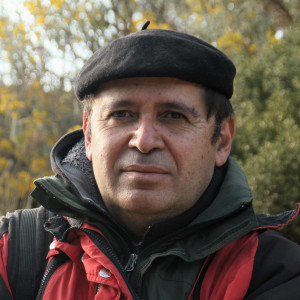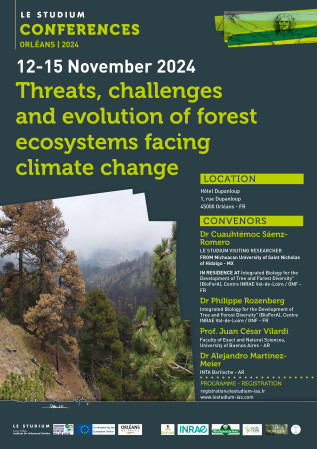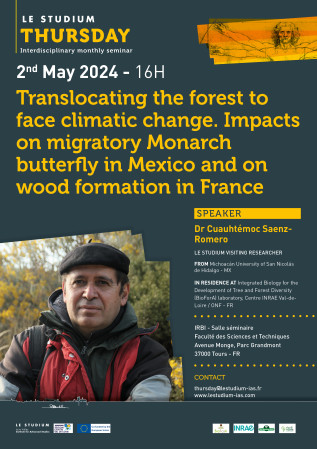Cuauhtémoc Saenz-Romero

From
Universidad Michoacana de San Nicolás de Hidalgo - MX
In residence at
BioForA, Centre INRAE Val-de-Loire / ONF - FR
Host scientist
Philippe Rozenberg
BIOGRAPHY
Born in México city, México. Bachelor degree in Biology (Universidad Metropolitana – Xochimilco, Mexico city), Master in Forestry Sciences (Universidad Autónoma Chapingo, Chapingo, Estado de México) and Ph.D. with major in Forestry and minor in Plant Breeding and Plant Genetics (University of Wisconsin-Madison, Wisconsin, USA). Currently full time professor-researcher, at the Instituto de Investigaciones sobre los Recursos Naturales, Universidad Michoacana de San Nicolás de Hidalgo, Morelia, Michoacán, México (August 1999 to date)
Sabbatical years at the Centre de foresterie des Laurentides, Service canadien des forêts, Ressources naturelles Canada, Quebec city, Canada (Aug. 2007-Jul 2008), and at the Unité Mixte a la Rechearche 1202 Biodiversité Gènes & Communautés, Institut national de la recherche agronomique (INRA), Cestas, France (Aug. 2014-Jul. 2015).
His main recent research interest is the management of forest genetic resources (genecology, population genetics, conservation and reforestation) considering climatic change. Emphasis on the estimation of genetic differentiation among conifer populations (along altitudinal gradients) for quantitative/adaptive traits, and generation of guidelines to decide seed and seedling movements for reforestation programs considering climatic change. His research has been conducted at the forest of Mexican Native Indians (First Nations) at Nuevo San Juan Parangaricutiro, Michoacán State, and Ixtlán de Juárez, Oaxaca. Recently has focused on searching for alternatives for reforestation [using assisted migration of Abies religiosa (Sacred Fir) provenances and shrubs as nurse plants] at the Monarch Butterfly Biosphere Reserve, center of México.
PROJECT
Plasticity of growth and wood formation in response to climatic change in forest trees
A management measure proposed to accommodate the expected impacts of climatic change on forest tree populations would be the shifting of forest tree provenances to sites where the expected future climate is that for which these trees have evolved. That requires understanding the phenotypic plasticity of the trees: the ability of a genotype to adjust its phenotype when growing under different environmental conditions. Microdensity profiles of wood annual rings, open the opportunity of relating radial growth to intra-annual and inter-annual climate variability. Time-related response functions (also called reaction norms) can be fitted at individual tree level in response to the climate variability at which a tree is exposed along its life span. Also, elevational reciprocal transplants offer a unique opportunity to test the ability of forest populations to adapt to a climate that is different from that of their seed-source. Our project aims to
- To develop microdensity profile response functions of Pseudotsuga mensiezii provenances growing in Southern French sites as exotic, and
- To generate a preliminary assessment of the adaptive limits (expressed in survival and growth) of Larix decidua from a clonal elevational reciprocal transplant test in the French Alps.
The novelity of our approach is that it will use intra-individual information (tree ring, early- and latewood width and density), as a retrospective recording of the history of their response to climate variability, instead of the conventional final tree height or stem volume. Such information will help to minimize the risks when deciding the magnitude of the transfer between the climate of the seed source and the climate of the planting site.


